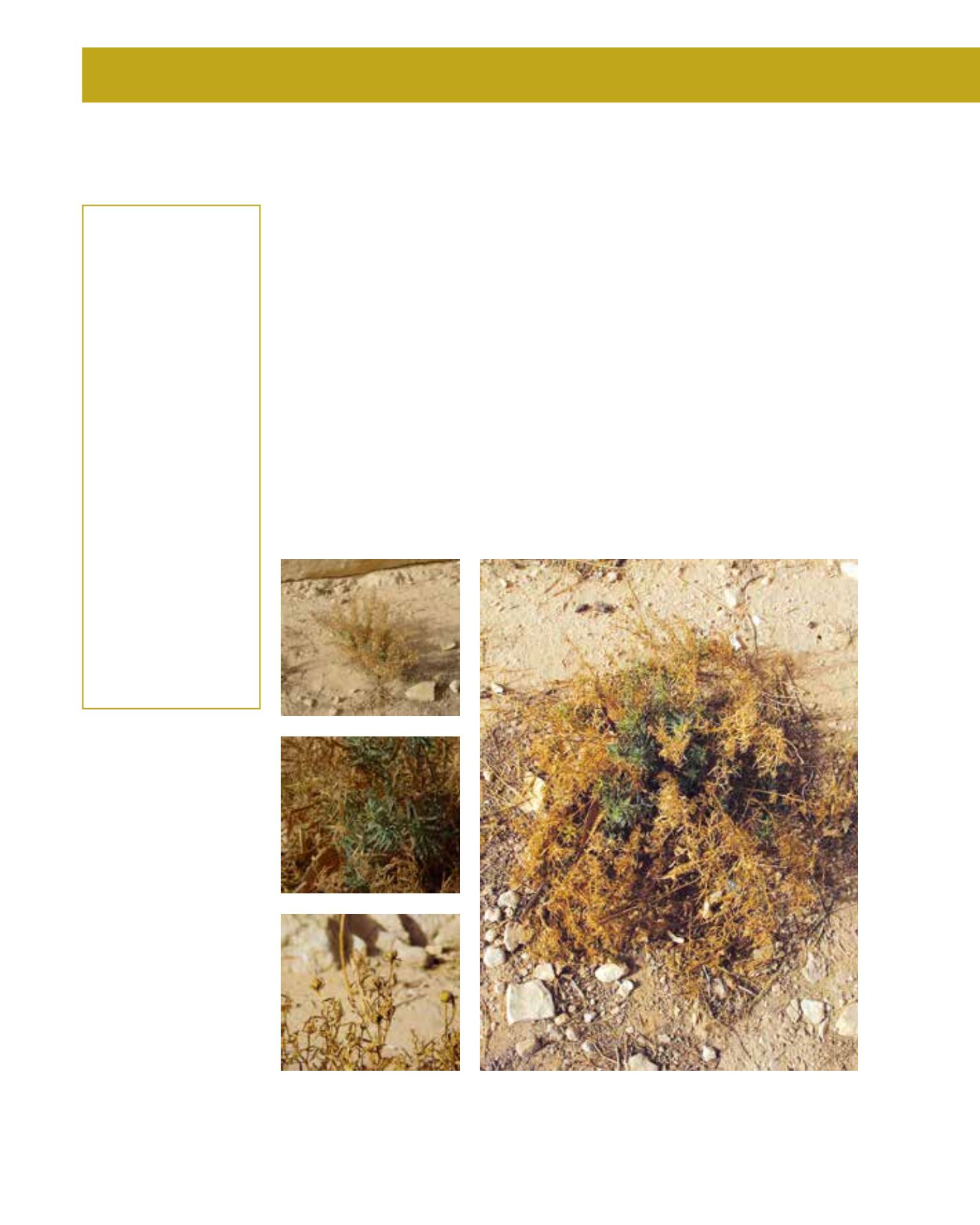

GENERAL
Origin
:
sub-tropical
Vigour
:
fast growing
Humidity
:
extremely arid,
very arid, semi-
arid
Propagation :
direct sowing
Maintenance :
low
CONDITIONS
Urban climate :
resistant
Dessication :
resistant
Stagnant water :
vulnerable
Irrigation
:
none
Salinity/ppm :
high (5000 ppm)
Hardiness
:
-6°C
SHAPE
Type
:
annual, biennial,
perennial
Height
:
0.4 m
Spread
:
0.5 m
Foliage
:
evergreen
FLOWER
Colour
:
green, yellow
Size
:
0.4 cm
Period
:
June - August
FRUIT
Type of fruit :
capsule
Fruit size
:
0.1 cm
Reseda muricata is distributed on the Arabian peninsula and the Middle East. In Arabic, it is
called dayl al kharouf. In Saudi Arabia, it can be found along the West Coast, Hejaz and on the
East Coast up to the central regions. Reseda muricata is a perennial, biennial and in some regions
only annual herb. It is a fairly fast-growing plant and looks like a dwarf shrub. It reaches a height
of 40 cm and a spread of up to 50 cm. The lower leaves are entire lanceolate, while the upper lea-
ves are ternate. The foliage is grey-green. Flowering begins in summer, with long yellow-whitish
racemes about 10 cm long. The individual flowers are 4 mm in size. The fruits are capsules with
serrated pits. The root system is lateral and deep. Propagation can be done by seeds. R. muricata
is an indigenous plant and is very well adapted to harsh desert conditions. The herb is highly salt-
tolerant. Maintenance requirements are very low after establishment, and irrigation will improve
a good development of the plant. The use of dayl al kharouf in landscape design can be seen in
the rehabilitation of natural plant cover, which means it can be considered for open country, as a
coloniser or slope stabiliser, and for environmental consolidation. Reseda will grow as a ground-
cover and as grouped planting. And even for natural garden themes or parks like Wadi Hanifah,
it will provide a pleasing display. In the extensive landscape surrounding Tuwaiq Palace in the
Diplomatic Quarter, some specimens can be found which were distributed by self-seeding.
255
Reseda muricata,
Resedaceae
Mignonette,
dayl al kharouf
















